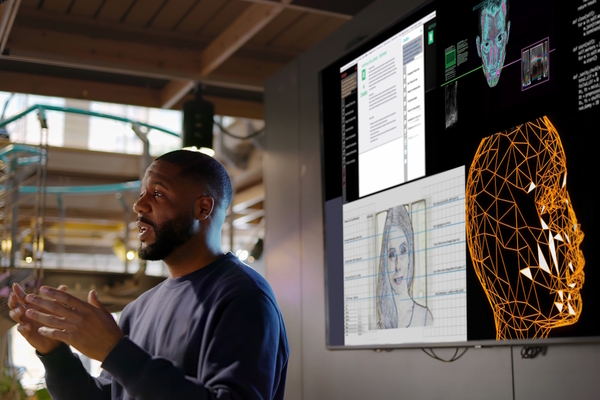Bridging the generational talent gap

Patrycja Sobera at Unisys asks whether AI can future-proof field services
Amid a rapidly changing workplace, where evolving technology and return-to-office mandates take the spotlight, an equally consequential challenge unfolding behind the scenes requires prompt attention.
The field services sector, which keeps essential operations from telecom networks to energy grids running, is facing a generational shift. This shift is resulting in a widening talent gap, which, if left unaddressed, could dramatically redefine company processes, technological innovation and organisations’ bottom lines.
As experienced technicians enter retirement, companies must focus on onboarding and empowering the next generation of talent. While this may seem as simple as filling vacant roles, the real challenge is preserving decades of expertise, accelerating employee skills to match technological needs and ensuring field service operations remain resilient, responsive and ready for the future.
Adapting to generational forces
Baby Boomers make up a significant portion of the field service workforce, and they’re retiring at an unprecedented rate, taking their experience with them. Veteran technicians carry decades of practical knowledge, including information about equipment quirks, customer preferences and troubleshooting shortcuts, many of which are not officially documented.
As a result, over the next 5-10 years, 70% of field service organisations expect to lose this type of critical knowledge. This impending knowledge gap has very real consequences, from longer resolution times, higher error rates and eroded customer trust.
Hiring new talent is only a partial solution, but it is not enough to adequately fill the growing experience gap. As skilled as they may be, newer employees still need time to grow. It is believed that 70% of skill development happens through hands-on experience, while only 10% is attained through formal training.
Without structured systems to transfer legacy knowledge, new technicians are left to learn through trial and error — a costly and risky approach for businesses in today’s complex and ever-changing business environment.
Leveraging innovative technologies
While experiential knowledge is irreplaceable, one avenue that can help bridge this widening skills gap can be found in technology advancements. Organisations must embrace new technologies like autonomous AI systems that can help diagnose equipment issues, predict failures and guide less-experienced technicians in real time by continuously analysing data patterns to flag emerging issues before they escalate.
More advanced AI platforms go even further — cross-referencing industry standards, vendor documentation and best practices while integrating real-time telemetry and service logs. This eliminates siloed knowledge and gives technicians a comprehensive, always-on diagnostic assistant.
Preserving expertise for future generations
Employees across industries report difficulty accessing the information they need to do their jobs effectively, with only 12-16% of employees saying the critical information they receive from leaders is helping them do their jobs well — a sign that traditional knowledge management systems are falling short.
Digital twins offer a solution. These AI-driven models are virtual replicas of systems or processes continuously updated with real-time data. The goal is to simulate, monitor and optimise performance, maintenance and decision-making as quickly as possible. Employees with less experience can use digital twins to continuously access expert, intuitive and contextualised insights on the job.
There’s no real limit to where digital twins can make an impact, from faster onboarding to reducing learning curves at any level and increasing employee productivity. They are an innovative solution to save decades of working knowledge and preserve that expertise for future generations.
As the field service industry evolves, companies that embrace AI and knowledge-preserving technologies will be better equipped to adapt to the changing talent landscape. It is crucial to act now to bridge the talent gap and not just weather the retirement wave but also lead the way towards smarter, more resilient field services.
Patrycja Sobera is Senior Vice President and General Manager, Digital Workplace Solutions at Unisys
Main image courtesy of iStockPhoto.com and DNY59

Business Reporter Team
Most Viewed
Winston House, 3rd Floor, Units 306-309, 2-4 Dollis Park, London, N3 1HF
23-29 Hendon Lane, London, N3 1RT
020 8349 4363
© 2025, Lyonsdown Limited. Business Reporter® is a registered trademark of Lyonsdown Ltd. VAT registration number: 830519543





